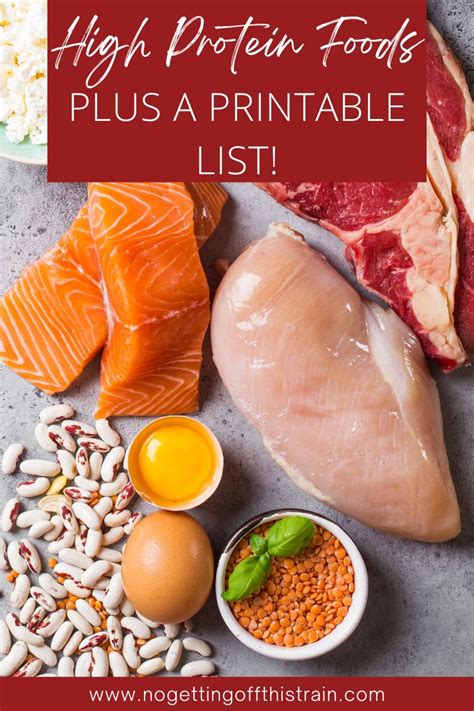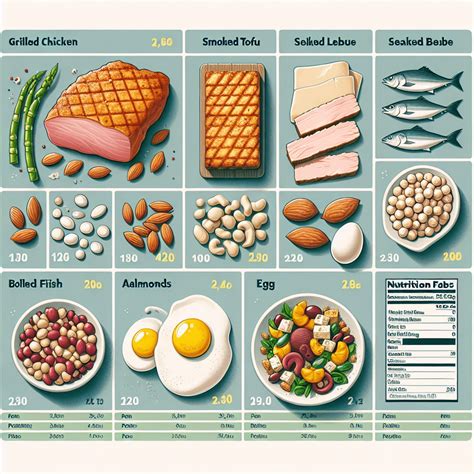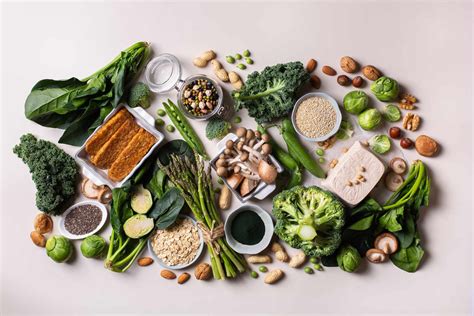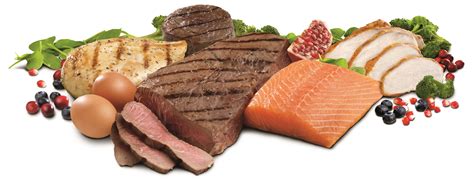Optimal daily protein for men’s muscle growth & recovery?

The Foundation of Muscle: Why Protein Matters
For men dedicated to building muscle mass and ensuring efficient recovery, protein isn’t just another macronutrient; it’s the fundamental building block. Protein provides the amino acids necessary for muscle protein synthesis (MPS), the process by which your body repairs damaged muscle fibers and builds new ones, leading to hypertrophy (muscle growth). Without adequate protein, your efforts in the gym may yield suboptimal results, and recovery from intense workouts can be significantly hindered.
Understanding how much protein is truly optimal, rather than simply sufficient, is key to unlocking your full potential. This article will delve into the science-backed recommendations, factors influencing individual needs, and practical strategies for incorporating enough protein into your daily diet for superior muscle development and swift recovery.

Quantifying Your Needs: How Much Protein is Optimal?
While general dietary guidelines suggest a certain amount of protein for overall health, men focused on muscle growth and intensive training require significantly more. Research consistently points to higher protein intakes for maximizing MPS and minimizing muscle breakdown, especially during periods of caloric deficit or intense training.
General Recommendations for Muscle Growth:
- Sedentary to Moderately Active: For general health and light activity, about 0.8 grams of protein per kilogram of body weight (0.36 grams per pound) is often recommended. However, this is insufficient for muscle building.
- Strength Training & Bodybuilding: The consensus among sports nutritionists and researchers for men actively engaged in resistance training is typically between 1.6 to 2.2 grams of protein per kilogram of body weight (0.7 to 1.0 grams per pound). Some studies even suggest benefits up to 2.5 g/kg (1.1 g/lb) or higher, particularly for highly active individuals or those in a caloric deficit aiming to preserve lean mass.
- Advanced Athletes/Cutting Phases: For advanced lifters or during aggressive fat loss phases where muscle preservation is paramount, protein intake might be pushed even higher, sometimes to 2.3-3.1 grams per kilogram of lean body mass (1.0-1.4 grams per pound of lean body mass). This helps combat muscle loss when calories are low.
It’s important to calculate based on your target body weight or lean body mass, especially if you carry significant body fat. Focusing on lean body mass provides a more accurate target for protein synthesis.

Factors Influencing Your Individual Protein Needs
While the general guidelines provide a solid starting point, several individual factors can influence your optimal daily protein intake:
- Activity Level & Training Intensity: The more intense and frequent your workouts, the greater your muscle protein breakdown, thus requiring more protein for repair and growth.
- Age: Older men (over 50) may experience “anabolic resistance,” meaning their muscles are less sensitive to protein signals. This necessitates a slightly higher intake, often towards the upper end of the recommended range, to stimulate MPS effectively.
- Body Composition Goals: If your goal is primarily muscle gain (bulking), consistent high protein intake supports new tissue growth. If you’re cutting (caloric deficit), higher protein intake is crucial for preserving existing muscle mass while losing fat.
- Dietary Restrictions: Men following vegetarian or vegan diets may need to pay closer attention to protein quality and variety to ensure a complete amino acid profile, potentially requiring a slightly higher overall intake.
The Role of Protein Quality and Timing:
Not all protein is created equal. Complete proteins, found in animal sources like meat, eggs, and dairy, contain all nine essential amino acids. Plant-based proteins can be combined to achieve a complete profile. Focusing on high-quality sources ensures you’re providing your body with the best building blocks.
While the “anabolic window” post-workout was once considered extremely narrow, current research suggests that total daily protein intake is more important than precise timing. However, spreading protein intake fairly evenly throughout the day (e.g., 20-40 grams per meal, 3-5 meals) can optimize MPS. Consuming a protein source before bed can also aid overnight recovery.

Practical Strategies to Hit Your Protein Targets
Achieving optimal protein intake doesn’t have to be complicated. Here are practical tips to ensure you’re consistently meeting your daily goals:
Incorporate Protein at Every Meal:
Aim to include a significant protein source in breakfast, lunch, dinner, and any snacks. Examples:
- Breakfast: Eggs, Greek yogurt, cottage cheese, protein smoothie.
- Lunch/Dinner: Chicken breast, lean beef, fish, turkey, tofu, lentils, beans.
- Snacks: Hard-boiled eggs, cheese sticks, nuts (in moderation), protein bar, jerky.

Consider Supplements (When Needed):
While whole foods should always be your primary source, protein supplements can be a convenient and effective way to bridge gaps in your intake. Whey protein is fast-digesting and ideal post-workout, while casein offers a slower release, suitable before bed. Plant-based protein powders are excellent alternatives for vegans or those with dairy sensitivities.
Track Your Intake:
Initially, using a food tracking app can help you understand your current protein consumption and identify areas for improvement. This allows you to make informed adjustments to your diet.

Conclusion
For men focused on maximizing muscle growth and ensuring robust recovery, an optimal daily protein intake is non-negotiable. Aiming for 1.6 to 2.2 grams per kilogram of body weight (0.7-1.0 grams per pound) serves as a strong evidence-based guideline, adaptable based on individual factors like activity level, age, and specific body composition goals. Prioritize high-quality, complete protein sources spread throughout the day, and consider supplements as a convenient aid. By consistently fueling your body with the protein it needs, you’ll lay a solid foundation for achieving your strength and physique goals.








